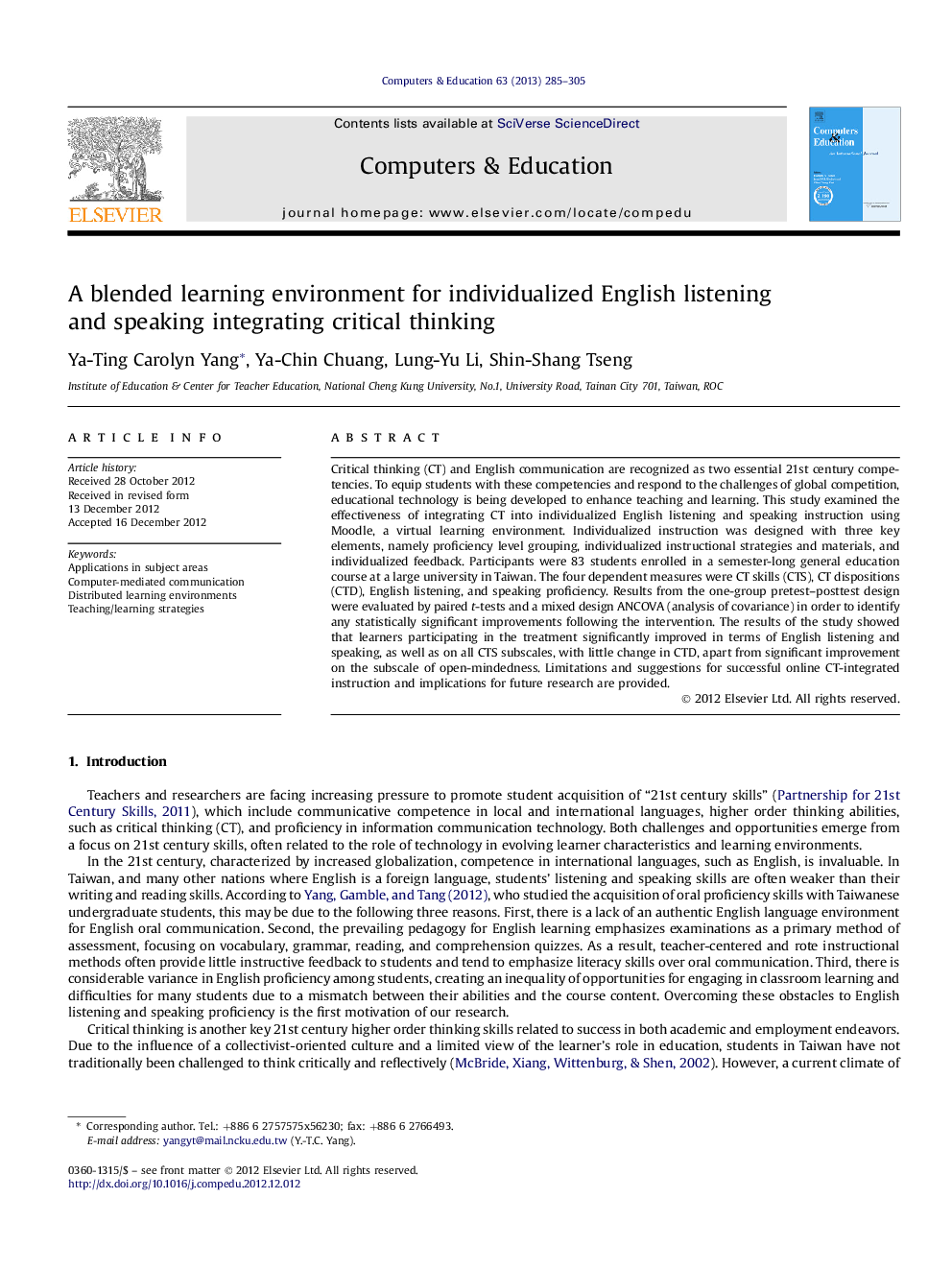| Article ID | Journal | Published Year | Pages | File Type |
|---|---|---|---|---|
| 348636 | Computers & Education | 2013 | 21 Pages |
Critical thinking (CT) and English communication are recognized as two essential 21st century competencies. To equip students with these competencies and respond to the challenges of global competition, educational technology is being developed to enhance teaching and learning. This study examined the effectiveness of integrating CT into individualized English listening and speaking instruction using Moodle, a virtual learning environment. Individualized instruction was designed with three key elements, namely proficiency level grouping, individualized instructional strategies and materials, and individualized feedback. Participants were 83 students enrolled in a semester-long general education course at a large university in Taiwan. The four dependent measures were CT skills (CTS), CT dispositions (CTD), English listening, and speaking proficiency. Results from the one-group pretest–posttest design were evaluated by paired t-tests and a mixed design ANCOVA (analysis of covariance) in order to identify any statistically significant improvements following the intervention. The results of the study showed that learners participating in the treatment significantly improved in terms of English listening and speaking, as well as on all CTS subscales, with little change in CTD, apart from significant improvement on the subscale of open-mindedness. Limitations and suggestions for successful online CT-integrated instruction and implications for future research are provided.
► Blended/virtual learning environments are best for individualized language learning. ► Grouping, individualized activities, and feedback were key design elements. ► Critical thinking-infused English listening and speaking activities are described. ► Online learners of all levels improved language and critical thinking skills. ► Critical thinking skills improve faster than dispositions in a blended model.
